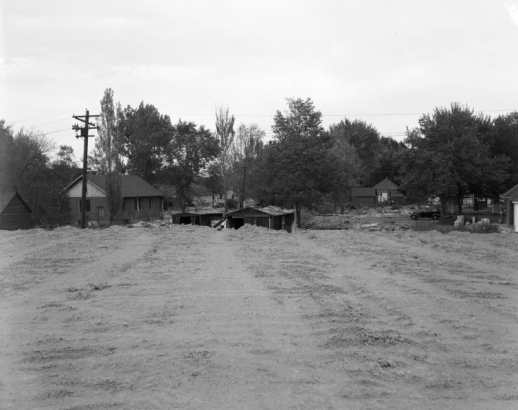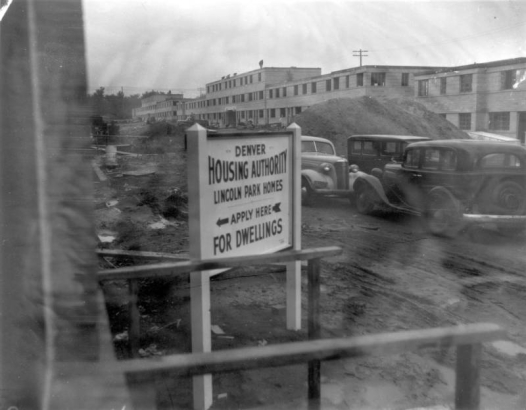***IMPORTANT: As of March 2024, this program has ended (all funds have been allocated). Please contact metrodpa@denvergov.org with any questions.***
Denver’s Department of Housing Stability (HOST) recently announced the launch of the metroDPA Social Equity program with the aim "to increase homeownership in communities of color that were historically targeted by discriminatory practices like redlining."
If you are a resident or descendent of someone who lived in a redlined Denver neighborhood between 1938 and 2000 OR if you lived in a qualifying area between 2010-2022, you may be eligible for $15,000 or $25,000 (depending on income) towards a down payment on a home in approved Front Range areas through the metroDPA Social Equity program. (Please note that people who make up to $176,700 a year and have a credit score above 640 are eligible for the program.)
Use this map to determine if an address is an eligible property. If you lived in a BLUE or GREEN area between 2010-2022, you may qualify. If you or an ancestor lived in a YELLOW or GREEN area between 1938-2000, you may qualify.
The metroDPA Social Equity program application is available online, but does require attaching documentation. Below is a guide to finding the documentation for the application.
STEP 1: Provide documentation that you, your parent, or grandparent lived in an YELLOW or GREEN area between 1938 and 2000 OR that you lived in a BLUE or GREEN area between 2010-2022.
In your application, you will need to provide at least two documents that simultaneously show the name of you, your parent, OR grandparent and the address of the home.
The MetroDPA Social Equity program's FAQ lists the following as acceptable documentation:
- Bank documents
- Court documents
- Credit card statements
- Driver’s licenses
- Income tax records (W-2, 1099, or first two pages of personal tax return)
- Insurance documents
- Lease agreements
- Marriage license
- Military documents (note that World War II draft registration cards - which show home address - are in Ancestry Library Edition, available at all DPL locations)
- Paystubs or letters of employment
- Phone bills
- Property deed or property tax records
- Public benefit records
- School records
- State identification cards
- Utility bills
- Vehicle registration
- Voter registration records
Additionally, the FAQ mentions that "other forms of verification may be accepted on a case-by-case basis." Here are some other forms of verification that you can try:
- A city directory is a listing of residents, businesses, organizations or institutions, that identifies their location within a city. City directories are similar to telephone books, but can contain more information such as occupation and spouse's name.
- Available online at all DPL locations in Ancestry Library Edition OR in-person at the Western History and Genealogy Department at Central Library)
- Learn how to search city directories in Ancestry Library Edition in this brief video tutorial
- 1940 and 1950 census records are searchable online through the National Archives
- You can also find the 1940 and 1950 censuses on Ancestry Library Edition, which is available at all DPL locations
- AMERICA’S NEWSPAPERS:
- Search the full-text of more recent issues of the Denver Post, the Rocky Mountain News (from 1992 to 2009), the Boulder Daily Camera, the Fort Collins Coloradoan and selected other papers; available to library cardholders outside the Library.
- AMERICA’S OBITUARIES AND DEATH NOTICES
- Search by name of deceased or keyword in a growing list of newspapers, including the Denver Post and Rocky Mountain News. Coverage varies by newspaper, generally 1990 and later.
- WESTERN HISTORY SUBJECT INDEX
- Western History Subject Index (formerly the General Index) card file contains more than seven million entries on four million cards. Developed over the last century, it provides access to citations of newspapers articles.
- COLORADO HISTORIC NEWSPAPERS COLLECTION (CHNC)
- A service of the Colorado State Library, the Colorado Historic Newspapers Collection (CHNC) currently includes more than 2 million digitized pages, representing more than 553 individual newspaper titles published in Colorado from 1859 up to 2020.
STEP 2: If you are a direct descendant of someone who lived in a historically redlined neighborhood of Denver, you must provide proof of a familial relationship.
The MetroDPA Social Equity program's FAQ lists the following as acceptable documentation:
- Birth certificate or decree / order of adoption
- Census records (see above)
- Probate records / wills (some records also available at Western History & Genealogy)
- Religious institutional records
- Obituaries / newspaper articles (see above)
- Other forms of verification may be accepted on a case-by-case basis
Need more help tracking down documentation? Please visit or contact the Western History and Genealogy Department at Central Library.



Comments
Thanks for providing such
Thanks for providing such comprehensive information to the general public on the metroDPA Social Equity Program. We appreciate so much the time and effort required in compiling this resource for the purpose of educating folks. It is clear and concise on how to research (to meet the residency requirement), how to apply, and how to benefit from the historical discriminatory practice which affected so many! Well done and thank you again!!!
Thank you for the kind words,
Thank you for the kind words, Diana!
Are you currently ac doting…
Are you currently ac doting applications?
Add new comment